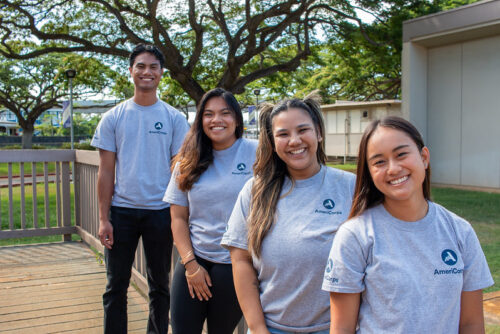
Podcast
Inside Trump’s White House
White House reporter Annie Linskey offers a closer look at how the Trump White House makes decisions and what recent actions reveal about its strategy.
Case Study
In this case study of democratic innovation at the local level, the authors answer the questions: Why, in 2022, was voting representation and democratic reform firmly on Portland’s agenda? Did this shift contribute to Portlanders passing Measure 26-228?
This is a case study of democratic innovation at the local level. Portland adopted its “commission” form of government in 1913. Between 1917 and 2007, seven ballot initiatives attempted to reform this governance structure; however, they tended to focus on strengthening mayoral power rather than enhancing democratic representation and expanding voting rights. At the core of this case study is the question: Why, in 2022, was voting representation and democratic reform firmly on the agenda? Did this shift contribute to Portlanders passing Measure 26-228?
This analysis highlights the interplay between institutional structures and political agency. The opportunity for these reforms came from a permissive political environment, characterized by the widespread perception that Portland was “broken” alongside a broader context of racial reckoning amid the protest wave triggered by the murder of George Floyd. As the decennial charter review process commenced in late 2020, there was consensus across the spectrum on the need for governance reform. However, it was the Charter Review Commission that proposed the bundle of reforms included in Measure 26-228. This sparked opposition from local political elites and the business community, who were primarily concerned with strengthening the position of mayor. The authors identify a process of network building and community organizing that, at each stage of the reform process, proved critical to developing and passing the reform initiative.
This process was precipitated by a coalition of community organizations, local activists, and leaders, often connected to people of color, that acted as the key agents in the reform process. This, in and of itself, is a significant factor. In the authors’ view, it is relatively unusual for these types of organizations to successfully mobilize public support and pass reforms in the face of opposition from local political and business leaders.
Podcast
White House reporter Annie Linskey offers a closer look at how the Trump White House makes decisions and what recent actions reveal about its strategy.
Podcast
Jonathan Rauch joins the podcast to discuss why he now believes “fascism” accurately describes Trump’s governing style.
Podcast
Drawing on new data from more than 10,000 Trump voters, this episode of Terms of Engagement unpacks the diverse constituencies behind the MAGA label.
Feature
Economists and policy analysts broadly agree that more housing needs to be built in order to reduce costs in America’s most expensive cities. Using a novel survey of mayors of mid-sized and large cities to explore mayors’ views on the roots of America’s housing crisis and what solutions they believe will most effectively address their constituents’ housing challenges, the authors summarize mayors’ attitudes and perceptions on key issues related to expanding the housing supply, reporting how well these views correlate with mayors’ assessments of their own cities’ supply needs.
Podcast
White House reporter Annie Linskey offers a closer look at how the Trump White House makes decisions and what recent actions reveal about its strategy.
Additional Resource
In a new essay, The Case for Building an AmeriCorps Alumni Leadership Network, Allen Lab Policy Fellow Sonali Nijhawan argues that the 1.4 million Americans who have completed national service represent an underleveraged civic asset. Drawing on her experience as former Director of AmeriCorps, Nijhawan outlines a roadmap for transforming dispersed alumni into a connected leadership network capable of reinvigorating public service, rebuilding trust in government, and strengthening civic participation.


